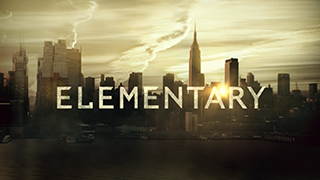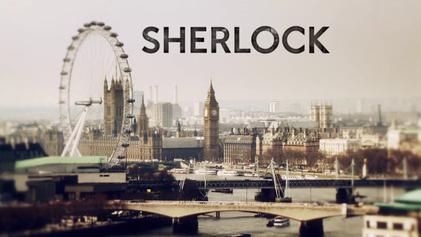The Old Testament speaks of God’s hands as a way in which God achieves all his purposes. It’s a metaphor for the Spirit of God.
The Psalms speak of God’s creation by saying his hands cast stars in to space
They think of the infinite nature of God by saying that he can hold the whole of the ocean in the cup of his hand, and measure the vastness of the universe in the span of his arms.
It speaks of the immanence and closeness of God to his people by saying he holds them by the right hand. Holding our hand like a good friend, a parent or a lover
The rise and fall of Israel was achieved not by their own hands but the strong arm of the Lord
“not by might but by spirit says the Lord.
In Jesus coming the word became flesh
That hand of God took on skin and bone
He pitched his tent in our neighbourhood
As a baby it would have curled round its mother’s finger
As a young man learned the skill of a carpenter
Jesus adult hands reached out to bless Children
Touched a leper and bought healing and acceptance
Touched the blind and the lame and they were made whole
Gave to the poor
Beckoned for people to follow him
Pointed to a shepherd on a hill or a gate as an illustration for a parable
Pointed out corruption and oppression
Gestured for the outcast to come down and dine with him
Comforted his friends Mary and Martha and raised their brother Lazarus from the dead
Embraced a close friend at one final supper
Finally those hands inspired by love were nailed to the rough wood of the cross
Maybe as we gaze today at the cross it is hard to see the hand of God in what happened there
Maybe it is easier to see the hand of man
Jesus prophesied that the son of man would be betrayed into the hands of men and they would kill him, but that he would rise again on the third day”
Jesus in the garden of Gethsemane is betrayed into the hands of the religious leaders by the kiss of a close and trusted friend
The hands of men drag him before unjust courts
The hands of men point with false allegations at him
They take him before the civil ruler.
By the hands of soldiers He flogged and beaten
Hands trust a cruel crown of thorns on his head
They are raised in mock salute
The hands of the civil ruler are washed of Jesus blood
and justice bows to political expediency
The hands of man nail Jesus hands and feet to a cross and haul him upright on this instrument of torture and death
The hands of man point and mockingly gesture “ come on down Jesus, save yourself, he said he could save others but he can’t even save himself”
There is the expectation that Jesus will now raise his hands against us to save himself
But Jesus response is not a clenched fist cursing or writing off of humanity
Rather he responds with love
His hands remain nailed to the cross so we listen to his words
A prayer for our forgiveness “Father forgive them they know not what they do”
A word of salvation to a repentant thief dying besides him
“Truly today you will be with me in paradise”
A word of comfort for a woman whose hands had held him when he was a baby and a beloved disciple “Dear woman here is your son, here is your mother”
“My God My God why have you forsaken me” The pain of separation but also the first line of a psalm of hope and trust
“I thirst”. A parched throat and a parched soul yet all has been done and he said this to fulfil scripture.
There is kindness a human hand passes up some wine to wet his lips.
Then Jesus lets out a great cry of triumph the last line of that same psalm “it is finished” Jesus has achieved all the Father had sent him to do.
Our salvation has been won.
The great reconciliation between God and humanity has been achieved.
The hands of man have done their worst but the hand of God has done a great good for us.
The hands of grace and love have taken the punishment of all our hands have done.
Not to plicate some angry deity but that their cost on us is paid
It is finished and now Jesus commits himself to the fathers care
“Father into your hands do I commend my spirit”
Isaiah said “ as the rain and the snow come down from heaven and do not return to it without watering the earth, and making it bud and flourish, so that it yields seed for the sower and bread for the eater. So my word does not return to me empty but will accomplish what I desire and achieve the purpose for which I have sent it.”
In the end the hands of man did not take Jesus life from him he yielded it up into the hands of the Father, Jesus is obedient unto death.
“The reason the father loves the son’ Jesus the good shepherd had said in John 10 is that I lay down my life… no one takes it from me I lay it down.
The soldiers pierce his side
The centurion sees Jesus death and hears his last words and comments “surely this was a righteous man”
The crowd that had started by mocking sees hears Jesus final words of trust in God and they turn to go. Beating their breasts, a sign of grief and contrition.
The hands of the soldiers take his body down from the cross.
The hands of the women and Joseph of Aramathia wrap him in a grave cloth and take him to a carved out tomb.
They cannot complete the task before the Sabbath comes with the dusk.
Their hands stained with tears and wrung with sorrow they are forced to leave.
It is finished but that is not the end
“It’s Friday” the old black preacher says “it is Friday but Sunday is coming”
“It’s Friday but Sunday is coming”
Philippians tells us about Jesus that the story does not end here. It tells us what God’s hand have done with Jesus Christ his beloved son.
“… and he became obedient even to death, even death on the cross.
Therefore God exalted him to the highest place
And gave him the name that is above every name
That at the name of Jesus every knee shall bow
In heaven and on earth and under the earth
Every tongue confess that Jesus Christ is Lord
To the glory of God the father.”
You and I we read the scripture and we reflect on the cross.
We look at our hands!
They are empty, hat have we got to give in light of such great love
In fact if there is anything in our hands it is all our brokenness
The hurt that we have done
The healing we have left undone
The hurt that has been inflicted on us
even our best intents seem tarnished and so little
The cross however is the right place for these things
Hear those words again “it is Finished”
See the nail scared hands take those things
See them reach out to you with love
With forgiveness
Acceptance
To bring healing and wholeness
To invite us to follow and remain with him.



























































